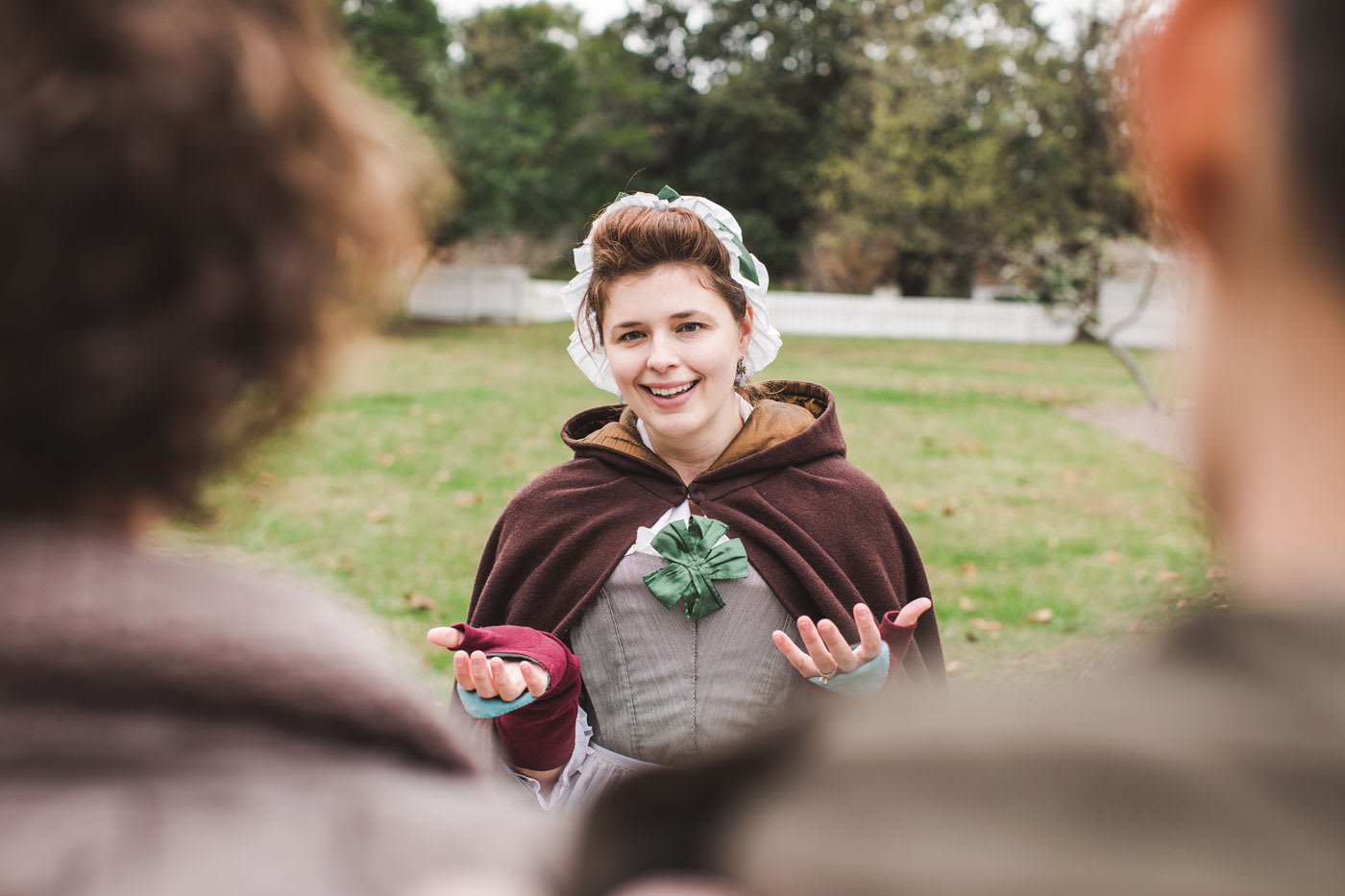At Colonial Williamsburg, historical research is at the core of our mission. The focus and motivation for exploring America’s beginnings has changed over nearly a century of interpretation, gradually encompassing a more inclusive narrative of the people who forged a nation. Almost a century of scholarship has helped create an immersive experience.
History and Research at Colonial Williamsburg
Everywhere you look at Colonial Williamsburg, you encounter history. What guests might not realize is that nearly a century of collective scholarship that has culminated in their personal encounter with Colonial Williamsburg’s unparalleled interpretation of 18th-century life. Every persona, program, and publication are products of years of inquiry by historians who have been building on the work of predecessors. Yet all these devoted scholars are not working toward some finite end when all the research will be complete. At Colonial Williamsburg, history is alive and ongoing.

A Complex Past
The notion of historical discovery as a continual process is hard for some people to grasp, according to Cathy Hellier, a Colonial Williamsburg historian of four decades, mostly because of the way many Americans were taught history. Historical research involves fact and hypothesis. Although new facts might emerge from new sources discovered, the facts are pretty stable. What changes most over time are the hypotheses. Historians use hypotheses try to explain things like why something happened, or what an event caused to happen next. Often schools teach hypothesis as fact, however (a big problem!). When the hypothesis changes (for various reasons, including those new facts and sources), it makes some people uncomfortable because it seems as if historians are “changing the facts.” History is a research discipline like science, though — so its arguments and conclusions change over time. The questions we ask of the primary sources change over time, too, as we react to our own changing world.
Through continued research, our understanding of history evolves and deepens. We hope that our research will spark conversations that allow our guests to dig deeper into history.
History didn’t happen in soundbites. The events that birthed a nation are lengthier and more nuanced than one phrase can capture. They are worthy of discussions that are sometimes difficult to have. Yes, George Washington was The Father of His Country, but he was more than a moniker. He was also a slave owner.
“People see a museum as a neutral arbiter, a community where they have conversations that can’t take place just anywhere,” says Peter Inker, the Theresa A. & Lawrence C. Salameno Director of Historical Research and Digital History. “That allows people to make connections with history.”
A Growing Story
The digital age has opened up a wealth of resources to aid historians in telling richer, more inclusive stories. This is not the first time that society has influenced how historical researchers do their job. During the Cold War, American historians often pursued themes that supported patriotic narratives. The Civil Rights Movement focused more energy on the contributions of minorities and women.
Evolving methods of investigation and new contexts not only help colonial historians flesh out stories that have never been told but enhance well-known and documented sagas. Through ongoing historical research, new evidence comes to light that adds dimension to established historical fact. New questions arise as clues challenge long-held assumptions.
The Church of England was a cornerstone of colonial American society, for instance. Laws required attendance for white Virginians and religious doctrine swayed policymaking. Only in recent decades have scholars begun to explore the influence that folk beliefs held in religious worship, according to Colonial Williamsburg historian Kelly Arehart. The understandings taken from fresh inquiries have helped write histories that were once neglected, such as the story of the enslaved African American preacher Gowan Pamphlet, whom guests can talk to today as one of Colonial Williamsburg’s Nation Builders.
Williamsburg in the 18th century, like the rest of colonial America, was not simply black and white. There was a broad spectrum of people and ideas. What brings those stories to life is endless inquiry that builds on itself. “Our research makes the guest experience that much more historically authentic,” says Arehart.